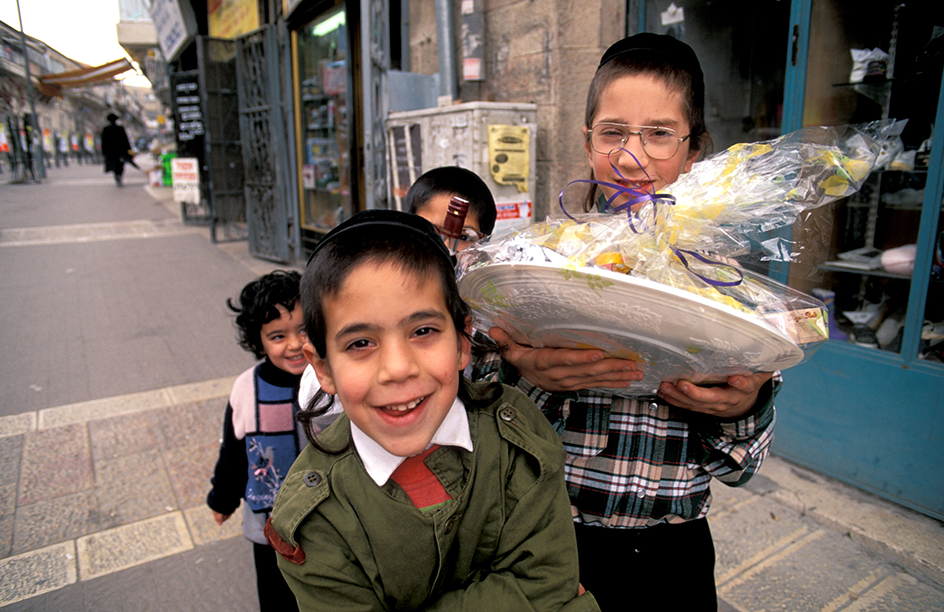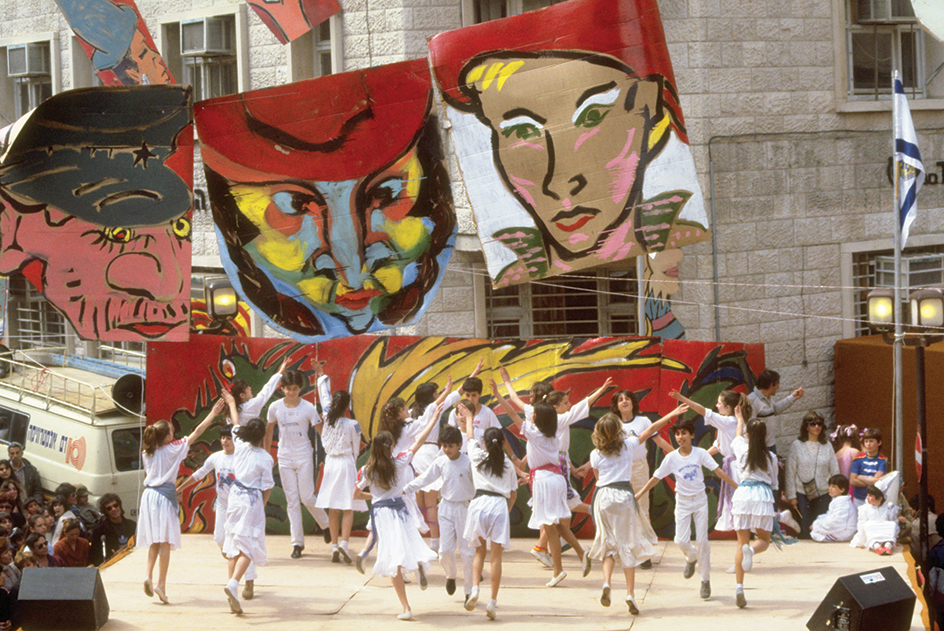Purim, << PU rihm or poo REEM, >> is a joyous Jewish festival celebrated in February or March, on the 14th day of the Hebrew month of Adar. It commemorates the rescue of the Jews of Persia from a plot to kill them.

The story of Purim is told in the Book of Esther in the Bible. Esther was the beautiful Jewish queen of King Ahasuerus of Persia. Her uncle Mordecai advised her, however, not to reveal that she was Jewish. The king’s wicked minister, Haman, persuaded Ahasuerus to have all the Jews in the empire killed. Haman drew lots to determine the day of their execution. The word Purim comes from the Hebrew word pur, which means lot. Mordecai and Esther decided to tell the king that Esther was Jewish and to plead with him to spare her people from destruction. First Esther fasted in preparation for her visit to the king, and then she revealed her Jewish origins. Ahasuerus was angry with Haman and had him killed for his plot. He then appointed Mordecai as minister.

Jews celebrate the survival of their people with great merriment. The Book of Esther, called the Megillah, is read in the synagogue. People send gifts of food to their neighbors and give charity to the poor. People dress in costumes representing Esther, Mordecai, Haman, and Ahasuerus, and hold carnivals. Jewish tradition established the Fast of Esther on the day before Purim to commemorate Esther’s fast and her courageous deeds (see Esther, Book of ).
